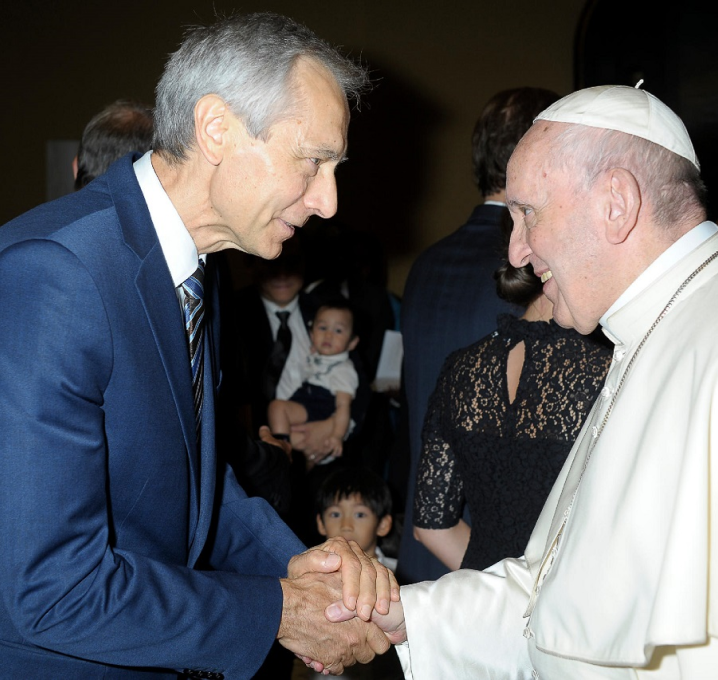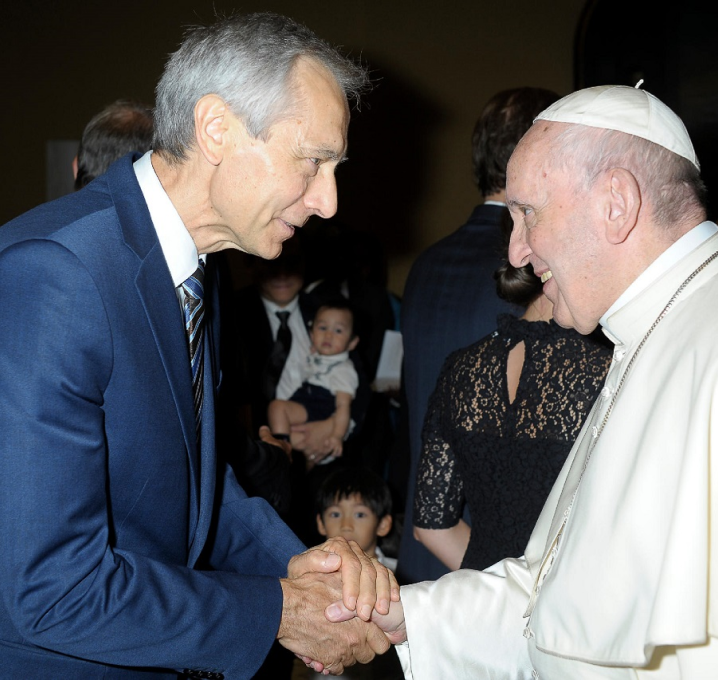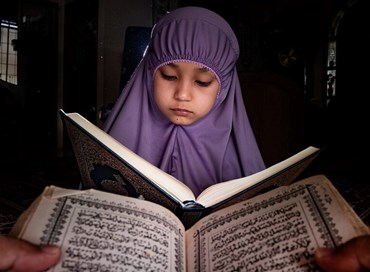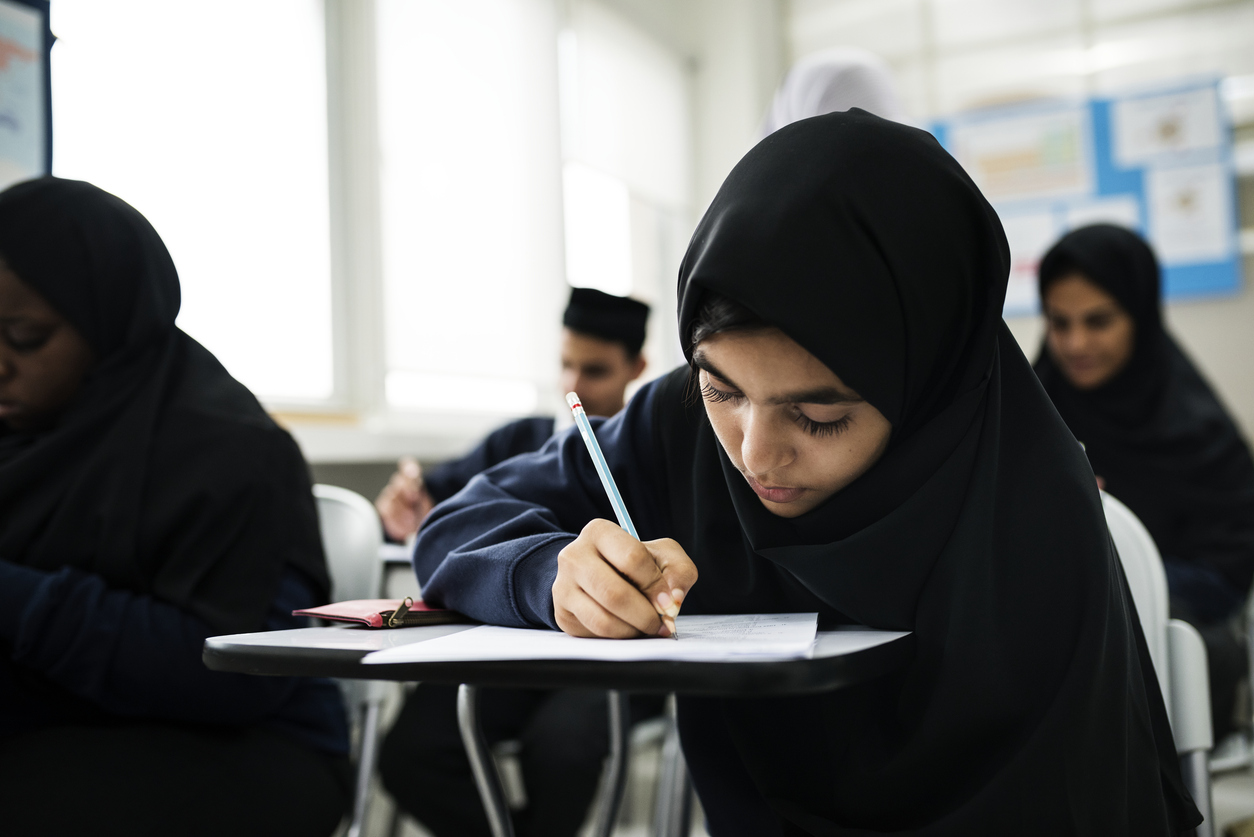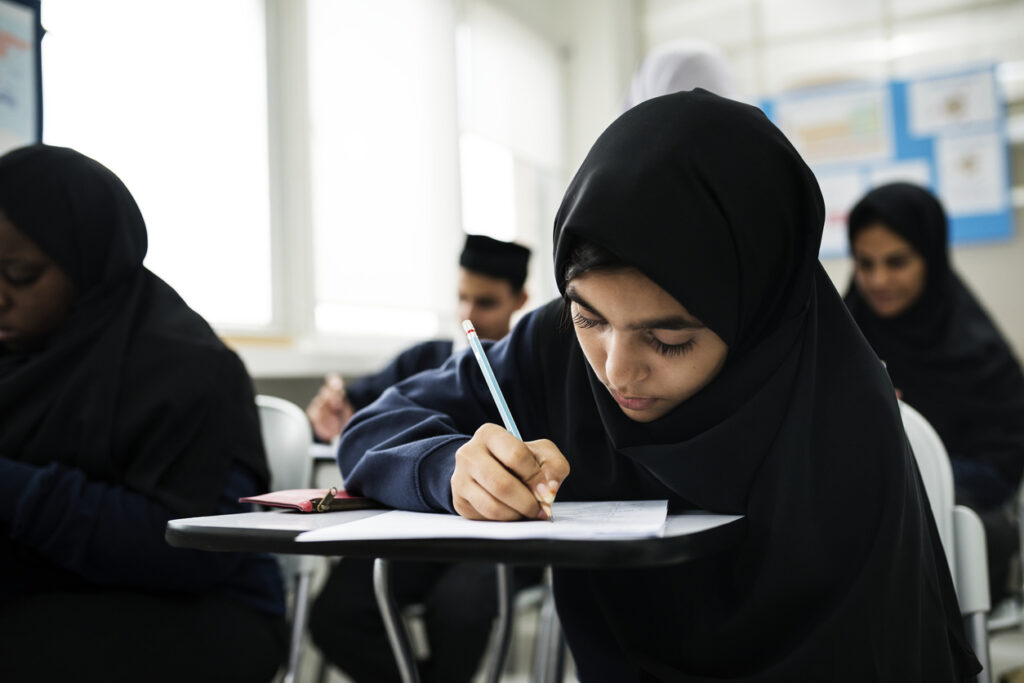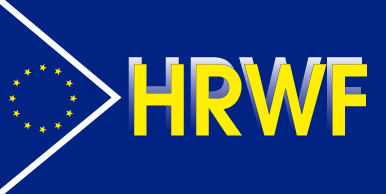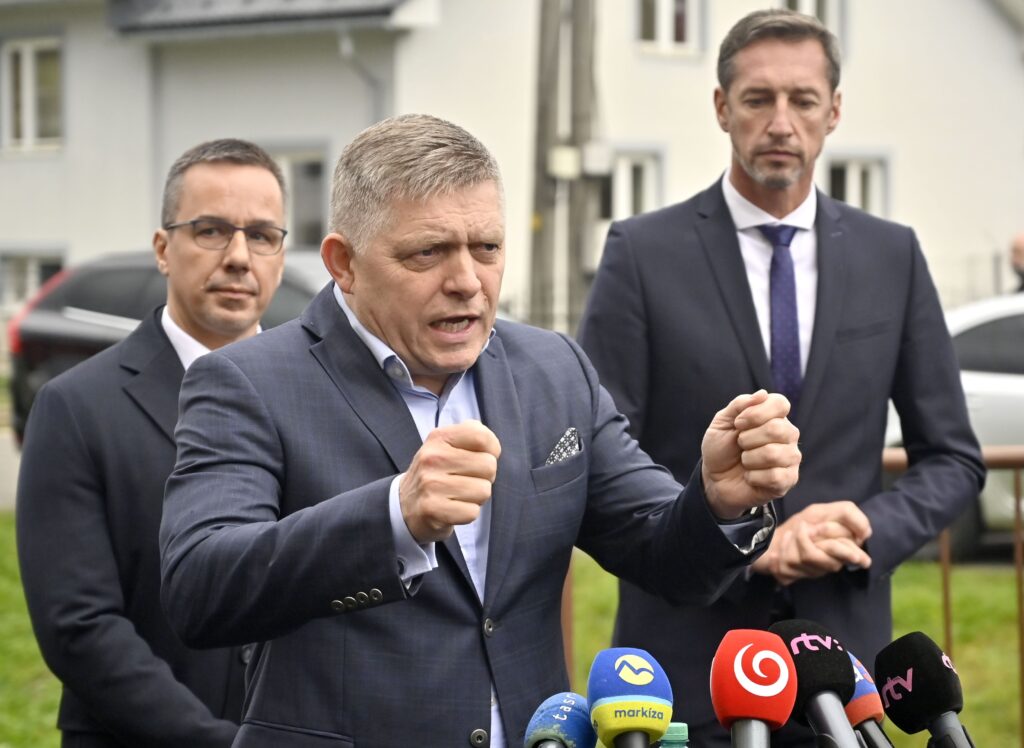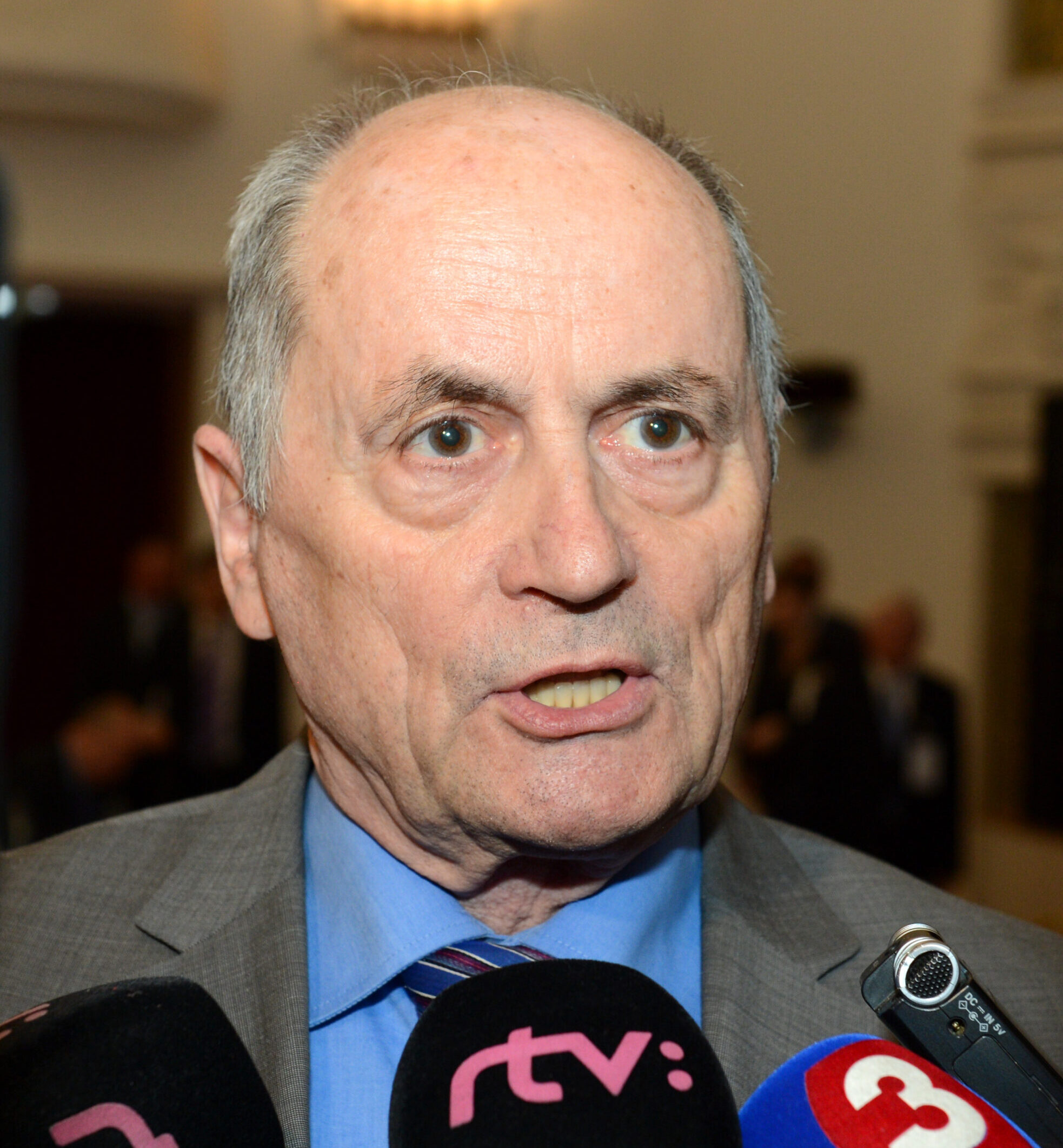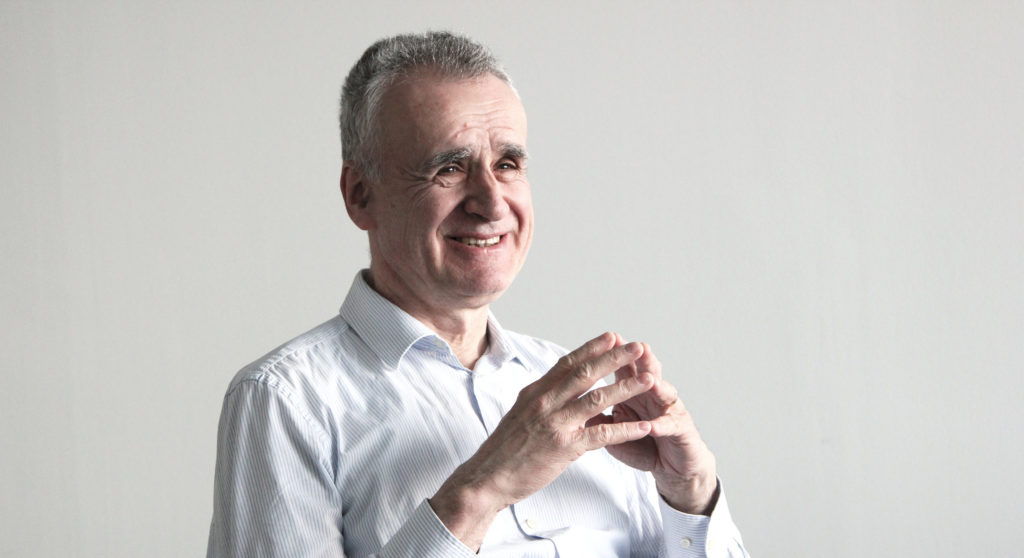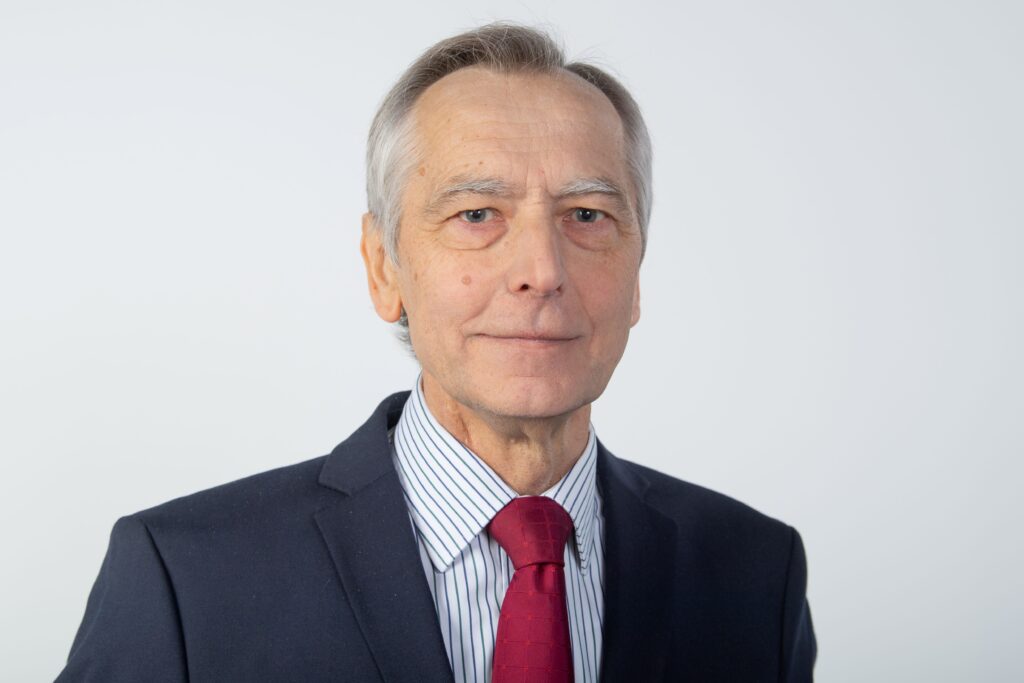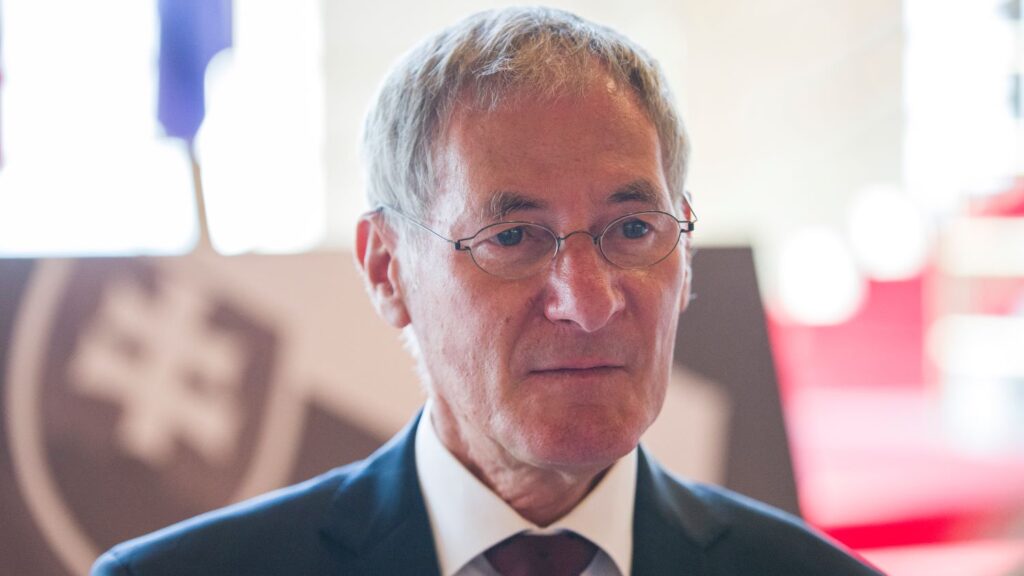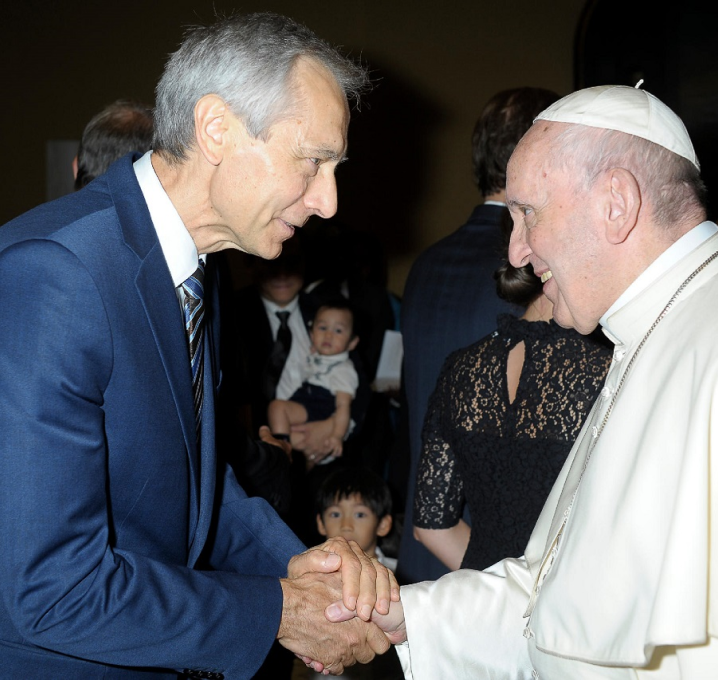
ByNewsdesk
Porträt im Glauben Jan Figel hat das Auftreten eines Menschen, der weder in Eile ist noch sich leicht aus der Ruhe bringen lässt. Er strahlt die ruhige Sicherheit eines Menschen aus, der jahrzehntelang komplexe Verhandlungen geführt, heikle Rahmenbedingungen geschaffen und sich still, aber bestimmt für diejenigen eingesetzt hat, deren Stimmen zum Schweigen gebracht wurden. Als Sondergesandter der Europäischen Union für die Förderung der Religions- und Glaubensfreiheit ist Figel zu einer tragenden Säule im oft umstrittenen und herausfordernden Bereich der internationalen Religionsfreiheit geworden. Seine Arbeit, die nicht von Rhetorik, sondern von pragmatischem Handeln geprägt ist, zeugt von der Macht nachhaltiger, prinzipientreuer Diplomatie angesichts der größten Ungerechtigkeiten der Welt.
Figel wurde in der Slowakei geboren und wuchs in einem Europa am Scheideweg auf, wo die Kräfte von Geschichte, Religion und Politik aufeinanderprallten und der Wunsch nach mehr persönlicher Freiheit erst kurz zuvor aus dem Schatten der sowjetischen Herrschaft hervorgetreten war. In diesem Umfeld entwickelte er schon früh ein Interesse an Menschenrechten, insbesondere an der Religionsfreiheit – ein Anliegen, das sein Berufsleben prägen sollte. Nach seinem Studium an der Universität Bratislava und dem Abschluss als Jurist war Figels Weg in die Politik und Diplomatie nahezu unvermeidlich, denn sein Gerechtigkeitssinn und sein Glaube an das Grundrecht jedes Einzelnen, seinem Gewissen zu folgen, prägten seine Persönlichkeit.
Ende der 1990er Jahre erholte sich die Slowakei von jahrzehntelanger totalitärer Herrschaft, und Jan Figel engagierte sich im slowakischen politischen System, als das Land gerade seine neu gewonnene Unabhängigkeit erlangte. Seine frühe politische Karriere war geprägt von der Entschlossenheit, eine Gesellschaft aufzubauen, in der Meinungs- und Glaubensfreiheit Grundrechte und keine Privilegien oder Ausnahmen sind. Figels Verständnis von Religionsfreiheit ging stets über die engen Grenzen des persönlichen Glaubens hinaus; für ihn ging es um die Architektur einer freien Gesellschaft, um die Schaffung eines öffentlichen Raums, in dem alle Stimmen ohne Angst vor Verfolgung oder Diskriminierung zu Wort kommen konnten.
Jan FigelSein tiefes Engagement für diese Ideale führte ihn 2004 mit dem Beitritt der Slowakei zur Europäischen Union auf die europäische Bühne. Sein Aufstieg verlief rasant, und bald wurde er zum slowakischen Minister für Verkehr, Post und Telekommunikation ernannt. Sein Engagement für die Menschenrechte blieb jedoch unerschütterlich, selbst in einer Funktion, die ihn dazu zwang, sich auf die Infrastruktur zu konzentrieren. Als sich die Gelegenheit bot, sich auf der EU-Bühne für mehr Religionsfreiheit einzusetzen, fühlte er sich erneut in die globale Diskussion über Religionsfreiheit hineingezogen.
Im Jahr 2016 wurde Figel, nachdem er stellvertretender Ministerpräsident der Slowakei gewesen war und eine Schlüsselfigur in diplomatischen Kreisen der EU war, zum Sondergesandten der Europäischen Union für die Förderung der Religions- und Glaubensfreiheit ernannt. In dieser Funktion fungierte er sowohl als Fürsprecher als auch als Vermittler und navigierte durch heikle internationale Gewässer, in denen die Religionsfreiheit durch autoritäre Regime, radikale Ideologien und wachsende Intoleranz bedroht ist.
Im Mittelpunkt von Figels Arbeit steht die Erkenntnis, dass Religionsfreiheit untrennbar mit der Gesundheit der Demokratie verbunden ist. In Ländern, in denen religiöse Rechte angegriffen werden, leidet nicht nur der Glaube – das gesamte soziale Gefüge. Ohne die Möglichkeit, frei zu glauben, ohne den Raum, seinen Glauben offen zu praktizieren und auszudrücken, wird dem Einzelnen ein zentraler Aspekt seiner Menschlichkeit genommen. Diese Überzeugung hat Figel zu einem unermüdlichen Verfechter der Rechte religiöser Minderheiten gemacht, insbesondere in Regionen, in denen diese Gemeinschaften am stärksten gefährdet sind.
Sein diplomatischer Ansatz ist einzigartig. Während andere lautstark oder emotional appellieren, ähnelt Figels Methode eher der geduldigen Arbeit eines Mediators. Er war schon immer jemand, der nach Gemeinsamkeiten sucht und nach Möglichkeiten sucht, Brücken zu bauen, anstatt Mauern einzureißen. In den Hallen der Vereinten Nationen, auf Konferenzen von Verfechtern der Religionsfreiheit oder bei Treffen mit ausländischen Diplomaten ist Figels Stimme ruhig, aber bestimmt, gelassen, aber unerschütterlich. Er ist kein Politiker, der versucht, das Gespräch zu dominieren, sondern jemand, der versteht, dass die besten Ergebnisse oft im Stillen, durch umsichtige Verhandlungen und das Bekenntnis zu gemeinsamen Werten erzielt werden.
Eine der bedeutendsten Leistungen Jan Figels als EU-Sondergesandter war sein Einsatz für die verfolgten religiösen Minderheiten im Nahen Osten. In der Region hat die Gewalt gegen religiöse Gruppen, insbesondere gegen Christen, Jesiden und andere kleinere Sekten, zugenommen, da sich extremistische Ideologien etabliert haben. Figel hat die internationale Gemeinschaft lautstark auf diese Probleme aufmerksam gemacht und die europäischen Staats- und Regierungschefs aufgefordert, sich für religiöse Minderheiten einzusetzen. Damit hat er sich nicht nur als Fürsprecher, sondern auch als Übersetzer des weltweiten Leids erwiesen – er trägt es in die Machtzentren und sorgt dafür, dass diejenigen, die oft übersehen werden, nicht vergessen werden.
Figels Einfluss reicht jedoch über den Nahen Osten hinaus. Er setzt sich unermüdlich für die Religionsfreiheit in der Europäischen Union ein und sorgt dafür, dass Gesetze und Richtlinien innerhalb der EU das Recht des Einzelnen respektieren, seinen Glauben ohne Angst vor Diskriminierung auszuüben. Der Aufstieg von Populismus und Nationalismus in Europa hat zu einem wachsenden Klima des Misstrauens und der Intoleranz geführt, in dem religiöse Minderheiten zunehmend an den Rand gedrängt werden. Figels Arbeit in diesem Bereich hat maßgeblich dazu beigetragen, diese Kräfte zurückzudrängen und die europäischen Staats- und Regierungschefs daran zu erinnern, dass Religionsfreiheit kein abstraktes Konzept, sondern ein Grundpfeiler der EU-Werte ist.
Er spielte zudem eine entscheidende Rolle bei der Etablierung und Förderung interreligiöser Dialoge. Er erkannte, dass wahre Religionsfreiheit nicht nur auf gesetzlichen Rechten beruht, sondern auch die Förderung eines Klimas gegenseitigen Respekts und Verständnisses. Figel setzte sich entschieden für den Aufbau von Beziehungen zwischen Menschen unterschiedlichen Glaubens ein und war überzeugt, dass durch Dialog und Zusammenarbeit selbst zwischen den unterschiedlichsten Glaubensrichtungen Gemeinsamkeiten gefunden werden können. In einer Welt, die zunehmend durch ideologische und religiöse Grenzen gespalten ist, erinnert Figels Werk daran, dass Frieden nicht aus der Abwesenheit von Meinungsverschiedenheiten entsteht, sondern aus der Bereitschaft, sich trotz aller Meinungsverschiedenheiten zu engagieren und nach Verständnis zu suchen.
Trotz der Bedeutung seiner Arbeit bleibt Figel eine zutiefst bescheidene Persönlichkeit. Sein Auftreten ist weit entfernt vom typischen Profil eines Diplomaten oder politischen Führers. Sein Handeln ist frei von Grandenismus; vielmehr scheint er sich mehr um die Ergebnisse seiner Bemühungen als um deren Sichtbarkeit zu sorgen. Er ist bekannt für sein aufmerksames Zuhören, seine Fähigkeit, Unausgesprochenes zu hören, und für seine ruhige Beharrlichkeit angesichts von Widerstand. Diese Bescheidenheit, gepaart mit seinem unerschütterlichen Engagement für die Menschenrechte, hat ihm den Respekt und die Bewunderung seiner Kollegen eingebracht, selbst derer, die in anderen Fragen anderer Meinung sind.
Jan Figel beschrieb sich selbst einmal mit den Worten: „Ich bin ein demütiger und schwacher Mann im Dienste Gottes und meines Nächsten.“ Diese Aussage bringt seinen Charakter auf den Punkt – ein Mann, dessen Dienst am Nächsten nicht aus dem Wunsch nach Anerkennung oder Macht erwächst, sondern aus dem tiefen, unerschütterlichen Glauben an die Bedeutung des Dienstes für etwas Größeres als sich selbst. Diese Demut prägt seine gesamte Einstellung zur Religionsfreiheit – er sieht sich nicht als Held oder Retter, sondern als Diener, der still und ohne großes Aufsehen für Gerechtigkeit kämpft.
Für Figel ist Religionsfreiheit kein abstraktes Ideal, sondern eine Frage des täglichen Lebens. Ihr hat er sein Leben verschrieben, und er verfolgt sie mit einer stillen Intensität, die in einer Welt, die Spektakel über Substanz stellt, oft übersehen wird. In seiner Arbeit geht es nicht um Ruhm oder Macht, sondern darum, sicherzustellen, dass Menschen weltweit ihr Leben nach ihren tiefsten Überzeugungen leben können – ohne Angst, ohne Unterdrückung und ohne Gewalt.
Auch heute noch ist Figel der Überzeugung treu, dass Religionsfreiheit nicht nur für das Gedeihen des Einzelnen, sondern für die Zukunft der Gesellschaft als Ganzes von entscheidender Bedeutung ist. Seine Arbeit prägt weiterhin die Konturen der europäischen Politik zur Religionsfreiheit, auch wenn er im Hintergrund still und leise diejenigen unterstützt, deren Rechte bedroht sind.
Wer Jan Figel begegnet, begegnet jemandem, dessen Werte nicht von den aktuellen politischen Winden abhängen, sondern auf einem tieferen Verständnis der anhaltenden Probleme der Welt beruhen. Seine Diplomatie beruht auf Prinzipien, nicht auf Posen; auf Überzeugung, nicht auf Bequemlichkeit. In einer Welt voller Lärm ist Figels stille Entschlossenheit eine eindringliche Erinnerung daran, dass das Streben nach Wahrheit, Gerechtigkeit und Religionsfreiheit Geduld, Mut und vor allem den unerschütterlichen Glauben erfordert, dass diese Werte verteidigt werden können und müssen.
Letztlich geht es Jan Figels Arbeit nicht um persönlichen Erfolg oder Anerkennung. Es geht ihm darum, eine Welt zu schaffen, in der Menschen aller Glaubensrichtungen, Hintergründe und Überzeugungen in Freiheit und Würde leben können. Und in diesem stillen Streben baut er weiterhin Stein für Stein eine gerechtere und friedlichere Welt für zukünftige Generationen.

